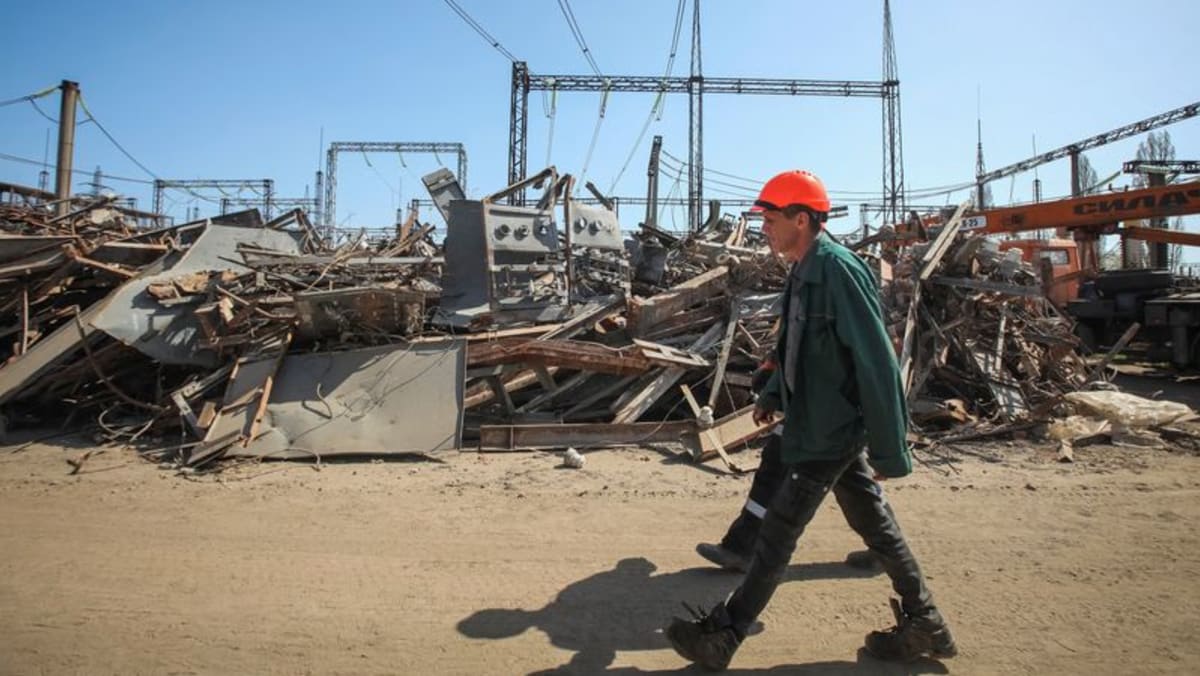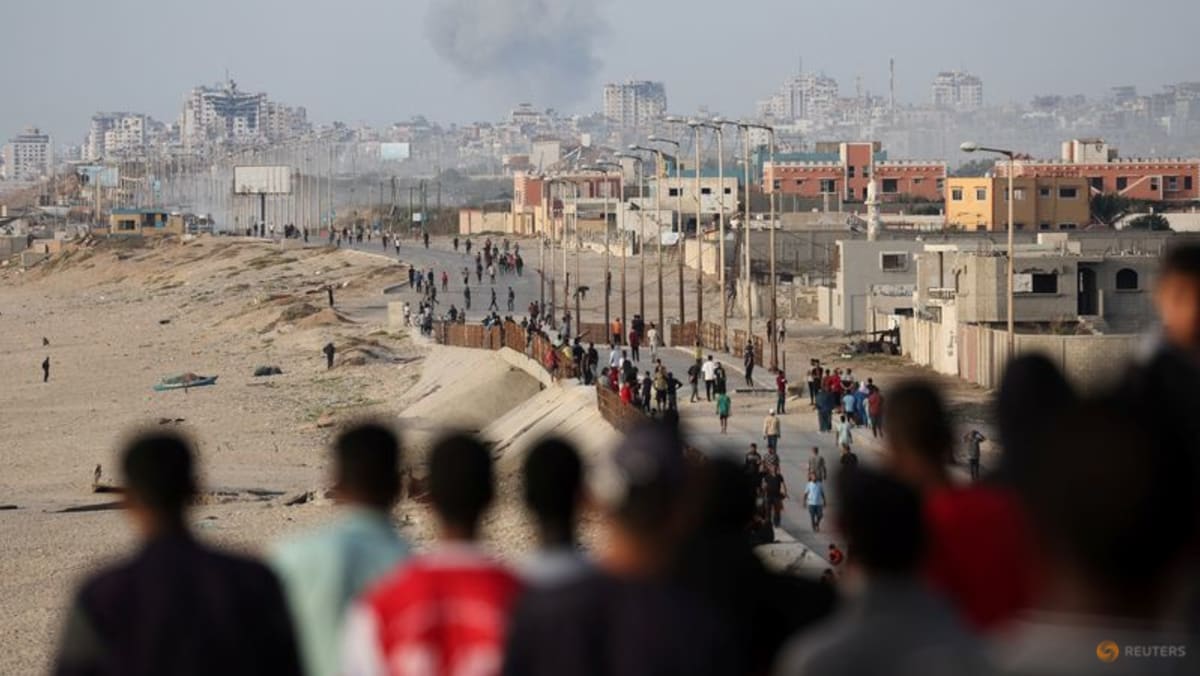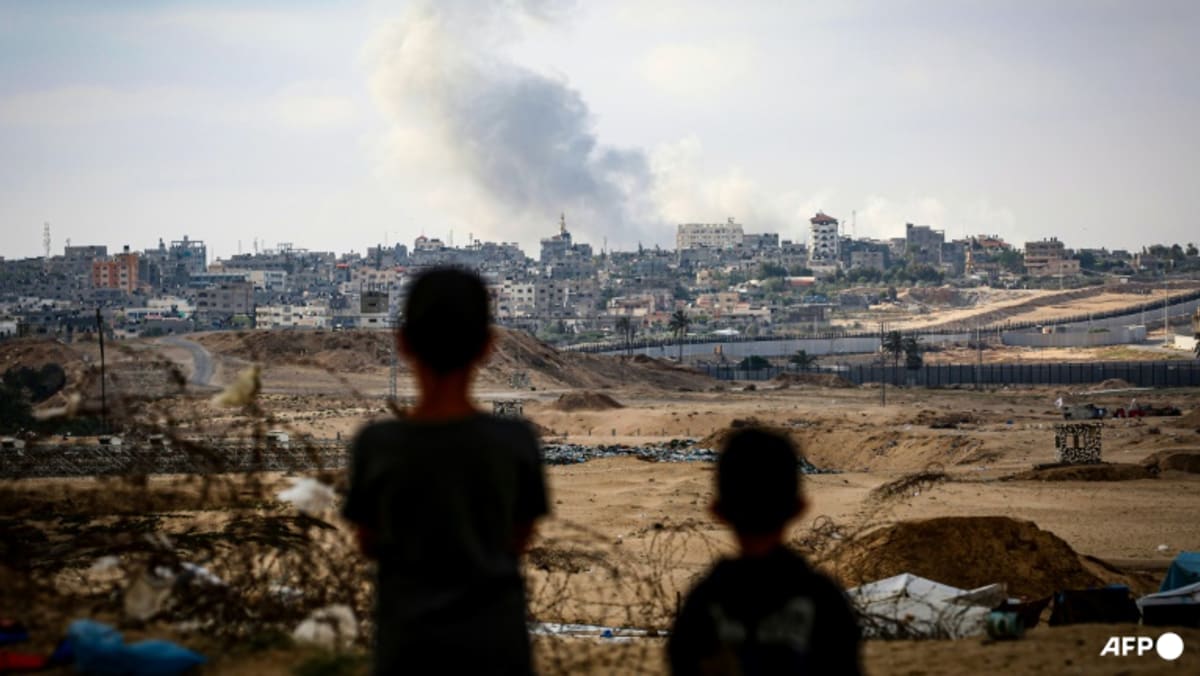BUSAN, South Korea: Iran launched hundreds of attack drones and missiles at Israel late on Saturday (Apr 13) in its first ever direct military assault on Israeli territory. It appears that most were shot down with minimal damage to Israeli citizens or infrastructure.
The wave of attacks was a response to Israel’s repeated strikes against Iranian leadership targets, both in and outside of Iran. Iran blamed Israel for bombing a consular annex building next to its main embassy in Syria on Apr 1, killing at least 16 people, including two generals.
Israel has said it will respond to Saturday’s drone strikes. That retaliation will likely be swift and punishing.
THREAT OF OPEN CONFLICT BETWEEN LONGTIME ENEMIES
Israel and Iran are sliding into an increasingly direct conflict. For years, the two sides have engaged in tit-for-tat, action-reaction strikes against each other. The pace and size of those strikes are increasing. Their interaction increasingly looks like a slow-motion war with no obvious off-ramp.
The United States has generally been unable or unwilling to rein in Israeli asymmetric action against Iran or anyone else, and it is unclear to whom Iran might listen. Indeed, Russia and China have a general strategic interest in Iran making trouble for the US in the Middle East. That keeps Washington distracted from the Ukraine war and Taiwan.
Escalating asymmetric actions obviously create a threat of an open conflict. To date, this has not occurred for two reasons, which the increasing scale of violence may undermine:
First, the US relationship with Israel is souring. The religious conservatives who run Israel have alienated the American left. As far back as the Obama administration, the US signalled that it would not be chain-ganged into an Israeli-forced conflict with Iran. The Biden administration has likely signalled the same. But Iran is a major American opponent in the region. Widely televised strikes like these drone attacks will push Biden back toward unwavering support of Israel.
Second, the Sunni Arab states between Israel and Iran are deeply conflicted. They are theologically hostile to both players. Iran is a Shiite state which many find distasteful. But if Israel and Iran increasingly trade open blows – likely with greater casualties on the Iranian side – calls for Muslim unity and pressure from the “Arab street” could push these states toward informal alignment with Iran.
 People drive along a street in Jerusalem on Apr 14, 2024. Iran's unprecedented attack on Israel has been "foiled", the Israeli army announced on Apr 14, with almost all of the more than 200 missiles and drones intercepted with the help of the United States and allies. (Photo: AFP/Menahem Kahana)
People drive along a street in Jerusalem on Apr 14, 2024. Iran's unprecedented attack on Israel has been "foiled", the Israeli army announced on Apr 14, with almost all of the more than 200 missiles and drones intercepted with the help of the United States and allies. (Photo: AFP/Menahem Kahana)
NO OBVIOUS SOLUTION, WITH NO OBVIOUS MEDIATOR
This is the wider conflagration the Biden administration has sought to avoid since the Gazan War began: Muslim states, pushed by images of destruction in a Muslim state, rally against Israel, which would compel the US to intervene on Israel’s side. Something like this happened in the 1973 Yom Kippur War. That conflict pulled in the Cold War superpowers too, threatening a much wider stand-off.
While this outcome seems unlikely at the moment, it looms, because there is no obvious resolution to this slow-boiling conflict. Not even a two-state solution, in which the Palestinians finally receive their own state, would likely end Israeli-Iranian recriminations. That solution would improve Israel’s relations with its Arab Sunni neighbors and isolate Iran, but it would not end the Iranian theological hostility toward Israel.
Persistent conflicts like this often require an outside mediator to tamp down. Unfortunately, there is no credible interlocuter for the relevant parties. The US is no longer a credible mediator in the Middle East; it is seen as too partisan. Russia and the EU are too weak. China is too distant. The UN is the other obvious choice, but it too lacks weight and credibility in the Middle East after decades of failed initiatives.
In short, the conflict is deeply set; there is no obvious solution to it; and there are no obvious mediators. This will get worse before it gets better.
Robert Kelly (@Robert_E_Kelly) is a professor of political science at Pusan National University.












 English (US) ·
English (US) ·  Turkish (TR) ·
Turkish (TR) ·